Are any tabletop games so enthralling as the best strategy board games? Calling upon your sharpest wits and pushing the fabric of your mental steel, games like Scythe, Root: Woodland Warfare, and Brass: Birmingham have you rationalising play and planning offensive movements until your tabletop friend opposite becomes but a foe to crush in the frenzy of tactical competition.
Of course, this is nothing new. Since carved wooden pieces were first placed on a chessboard, humans have been looking for ways to prove their superiority on the battlegrounds of the tabletop. But it has become a little more complicated as of late. With such a diverse bundle of sub-genres constituting the strategy ethos, and acclaimed titles releasing month-to-month, it can be tricky to keep a handle on the best games around.
To save you the hassle of wasted ventures, we’ve collected a list of the finest strategy games below. In it, you’ll find a mix of genres and intensities. Some are placid Euro-games that can be played at any pace to suit your party of tacticians, while others are hardened wargames that will have you dredging the depths of your primordial offensive instincts. Some offer territory control, engine building, or a combination of several flavours.
Although many strategy games ape the typical historical military fare, we’ve made sure to extend our list beyond the restricted offerings of khakied soldiers. You’ll find everything from big robots to birdwatchers here.
So, put on your thinking cap and prepare the war room, because…
These are the best strategy board games:
- Scythe
- Root
- Photosynthesis
- Diplomacy
- Wingspan
- Small World
- Brass: Birmingham
- Fief: France 1429
- Gaia Project
- Blokus
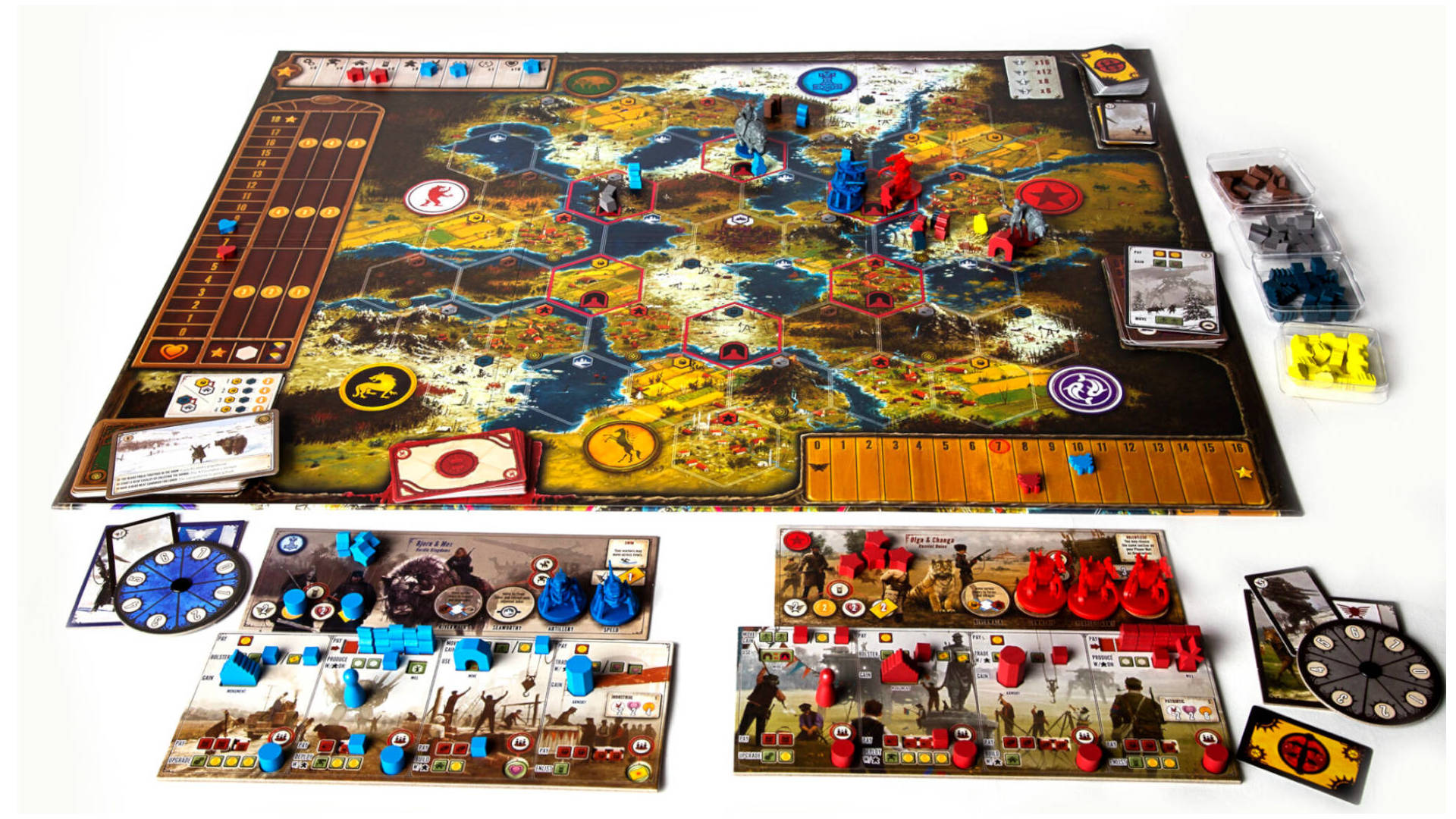 Buy now
Buy nowScythe
Come for the mechs and stay for the depth. Set in artist Jakub Różalski’s 1920s alternate-history dieselpunk world, which combines industrial modernity with bucolic tradition into an age of rampant, rusted conflict, Scythe’s charm extends far beyond its ambitious thematic setting. Of course, playing as a resurgent East European nation developing its army of heavily armoured mechs to conquer territory is appealing enough, but under this lies a refined and replayable strategy game.
Activate mechs to send a stark warning – and a scintilla of terror – to other players
Scythe is an engine-building game at heart, challenging you to gradually construct new production facilities and expand your borders to accrue additional resources, all the while paying close attention to opposing military advances. Recruit troops to bolster your forces, and activate mechs to send a stark warning – and a scintilla of terror – to anyone getting a little too comfortable around your boundaries. When the clash finally takes place, prepare for an onslaught.
Players will be trying to complete personal, randomised objectives, secretly handed out at the beginning of the game – some push you to field a completed mech arsenal on the board, or control a set amount of territory. This randomised element, along with the five factions’ unique abilities, ensures games play out differently each time. Even if your opponent is an old hand at playing the Polonia Republic, won’t be able to bank on their experience with its modernized army to win.
Swift and smooth turn-taking, combined with not overly aggressive mechanics, make Scythe a treat for both casual strategisers and hardened generals. No one will be immediately thrown from the fight.
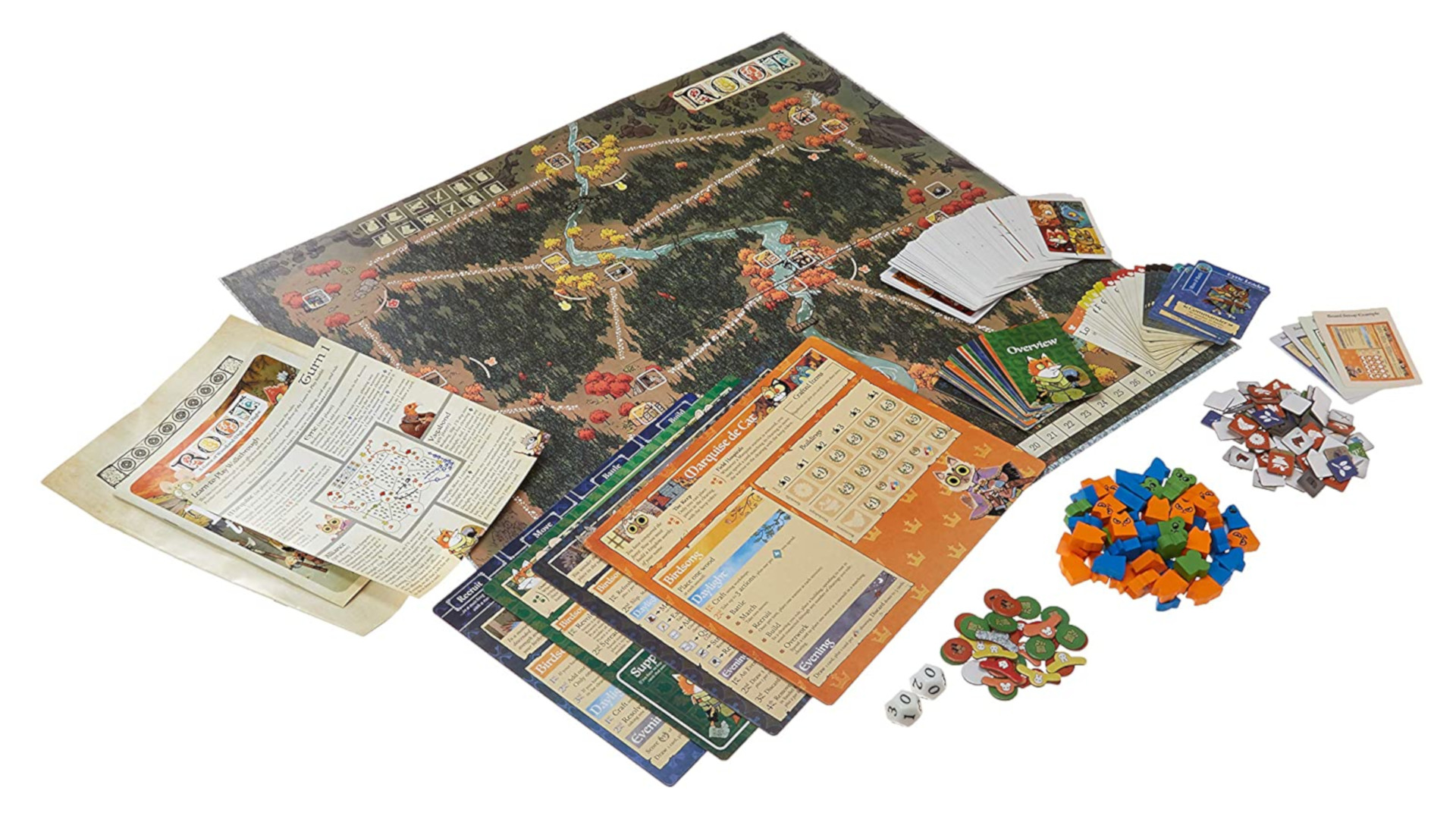 Buy now
Buy nowRoot
The widely acclaimed asymmetric wargame from Leder Games proves that strategic depth and ingenuity need not be married to historical realism. The self-styled game of “woodland might and right” casts off the overworn khakis of World War 2 simulators and the done-to-death line battles of Napoleonic wargames, in place of violent animal critters, scrabbling for bloody domination of their forested realm.
Root is best known for its heavily distinct factions. None play the same, and while there are commonalities between turn-taking and gameplay logistics, each brings a particular mode of operation, point scoring, and presence on the game board. The dictatorial Marquise de Cat plays as an engine builder, accelerating the growth of their vast arming to swarm the forest in industrial might; the avian Eyrie focus on quick and sporadic territory capture; the Woodland Alliance gradually take control in piecemeal, guerilla strikes; while the adventurous vagabond is more likely to form backstabbing alliances and stay clear of the fray.
You against the world: These are the best solo board games
Root’s genius is to work all of these disparate playstyles into a single, balanced game. No faction feels better than the other, nor more complex to comprehend. Rules are dense, and learning the unique playstyle for each faction can be a time-consuming process, but a fully rewarding experience awaits. Games ebb and flow as the environment shifts to each faction’s strength, or an unexpected play by a previously overlooked agent disrupts the balance of the board. The constant encouragement of player interaction ensures more daring offensives are never overlooked – land grabbing and dastardly encounters are highly encouraged.
A digital adaptation of the board game was released in 2020, which we thought was just wonderful. Read our review of Root: Digital Edition.
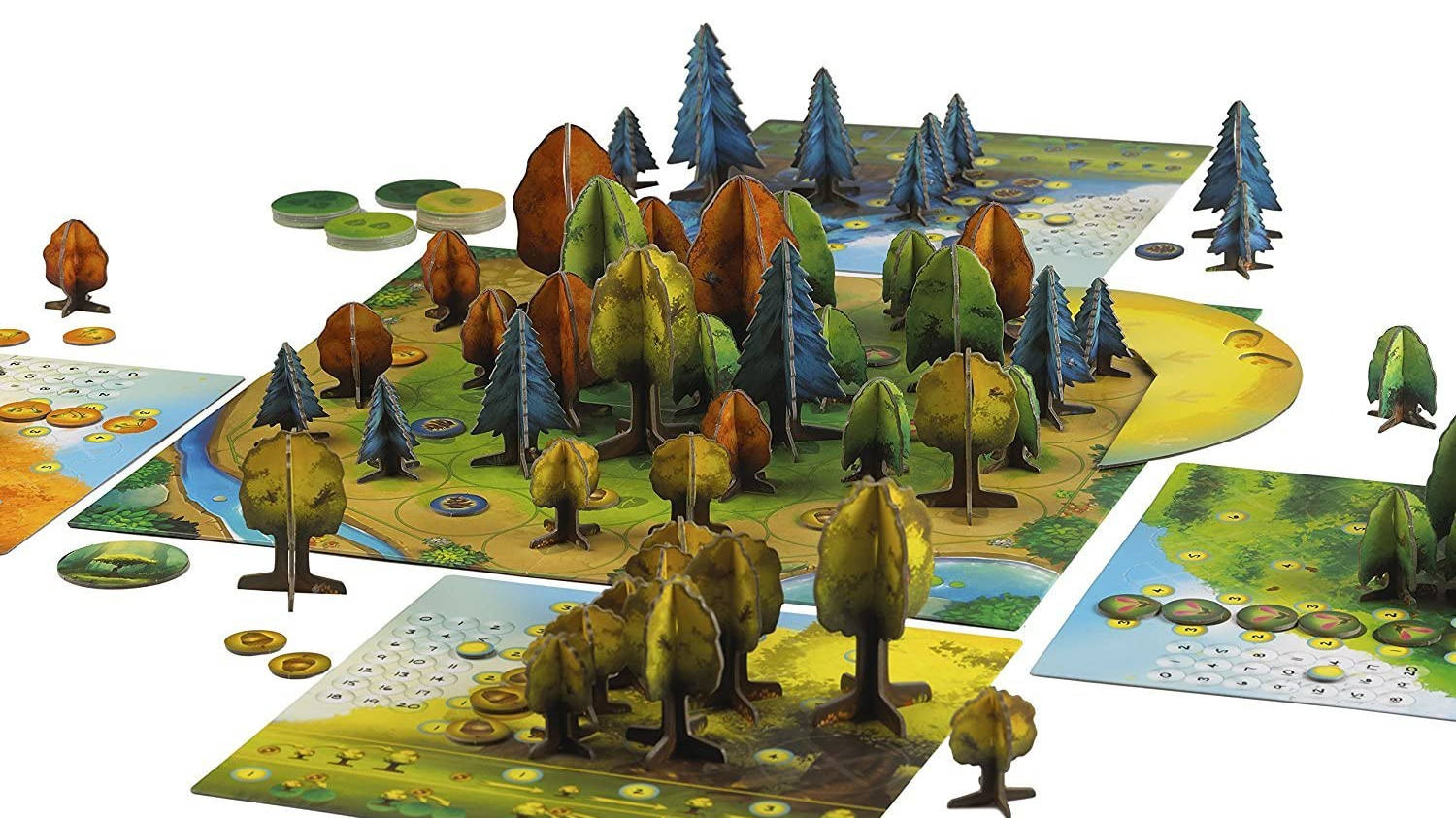 Buy now
Buy nowPHOTOSYNTHESIS
Gardening is crazy exciting. Planting bulbs in the late Autumn for them to bloom in colourful arrays during springtime, potting up saplings when they’ve grown too big for their beginner pots, pruning bushes to encourage new growth – these are the thrills that life is made for. And get this – plants give us life. Like, actual life. They produce the oxygen we goddamn breath to stay alive. Plants are incredible, and no other hobby holds a candle to the raw chlorophyllic excitement of gardening.
No other hobby holds a candle to the chlorophyllic excitement of gardening
You, too, will have this newfound appreciation for our unconscious biological friends after playing Photosynthesis, a heavily themed strategy game that tasks you and up to three others to grow a grove of trees, competing for canopy control. Seeds sown across the board will grow from small saplings to mighty trunks, collecting more ‘light’ for you to spend on new seeds, grow again to bigger trees, and score points for completing the lifecycle of your plants.
But place them carefully. Those seeded in the shade of others will grow more slowly, and decelerate your plant empire. Photosynthesis is made all the more complicated by the rotating sun, moving shadows across the board and making your once bountiful clearing a desolate space of barren growth. The game’s gorgeous board art and visually striking 3D cardboard trees are enough to pique anyone’s interest, but the placid, easy-to-grasp tactics that lie within will have you dig out your secateurs and trowel again and again.
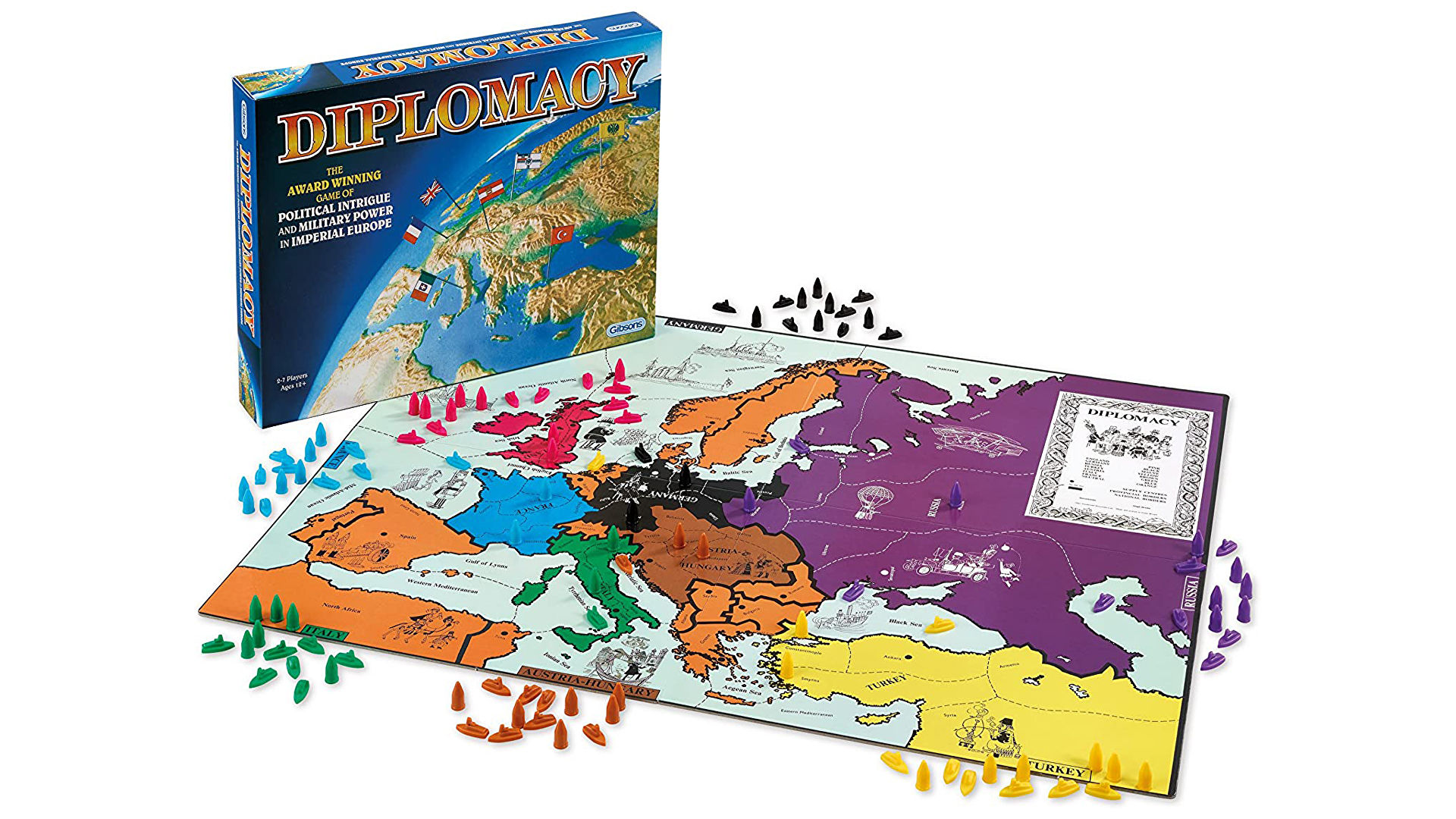 Buy now
Buy nowDIPLOMACY
Grand strategy without dice rolls, and a healthy dollop of interpersonal manipulation. A true classic that was apparently (but more likely apocryphally) a favourite of Henry Kissenger and John F. Kennedy, Diplomacy leans into the deceitful backroom machinations of international relations, as two to seven players take on the role of European powers vying for territorial dominance in the lead up to World War One.
Issuing attack and defend commands to your troops, all players make their decisions in secret before resolving their effects simultaneously, calculating which territories have switched hands based on the relative size of the battling battalions, Move your troops into new territories to capture point-scoring provinces, and earn crucial troop-generating ‘supply centres’. Barebones, simple rules with combat operating on a ‘biggest army wins’ principle, the game’s charm comes not from its military tactics, but the judicious backroom deals made in the interim of each battle.
Never monopoly: Check out the best board games for adults
Diplomacy is as much about cunning and manipulation as it is about strategic troop movement. Between submitting orders, players are free to negotiate their plans with enemy commanders, forming alliances, unifying strategies, and tricking opponents into revealing their vulnerabilities. But nothing is binding. Agree to a temporary ceasefire with one player, only to invade their territory that same turn; deceive an enemy into believing you’re sending troops to invade the Iberian Peninsula, but instead, divert them through Sicily, catching your enemy unprepared.
You’ll be spending more time away from the table in whispered conversations of military machinations, than scribbling troop orders on scraps of paper – or passing secret notes around the table to conduct a grand stroke of military genius. It’s unforgiving, stressful, and will take as long as the players spend deliberating between turns, but shifts to an exhilarating cataclysm of surprises in its move eventful stages.
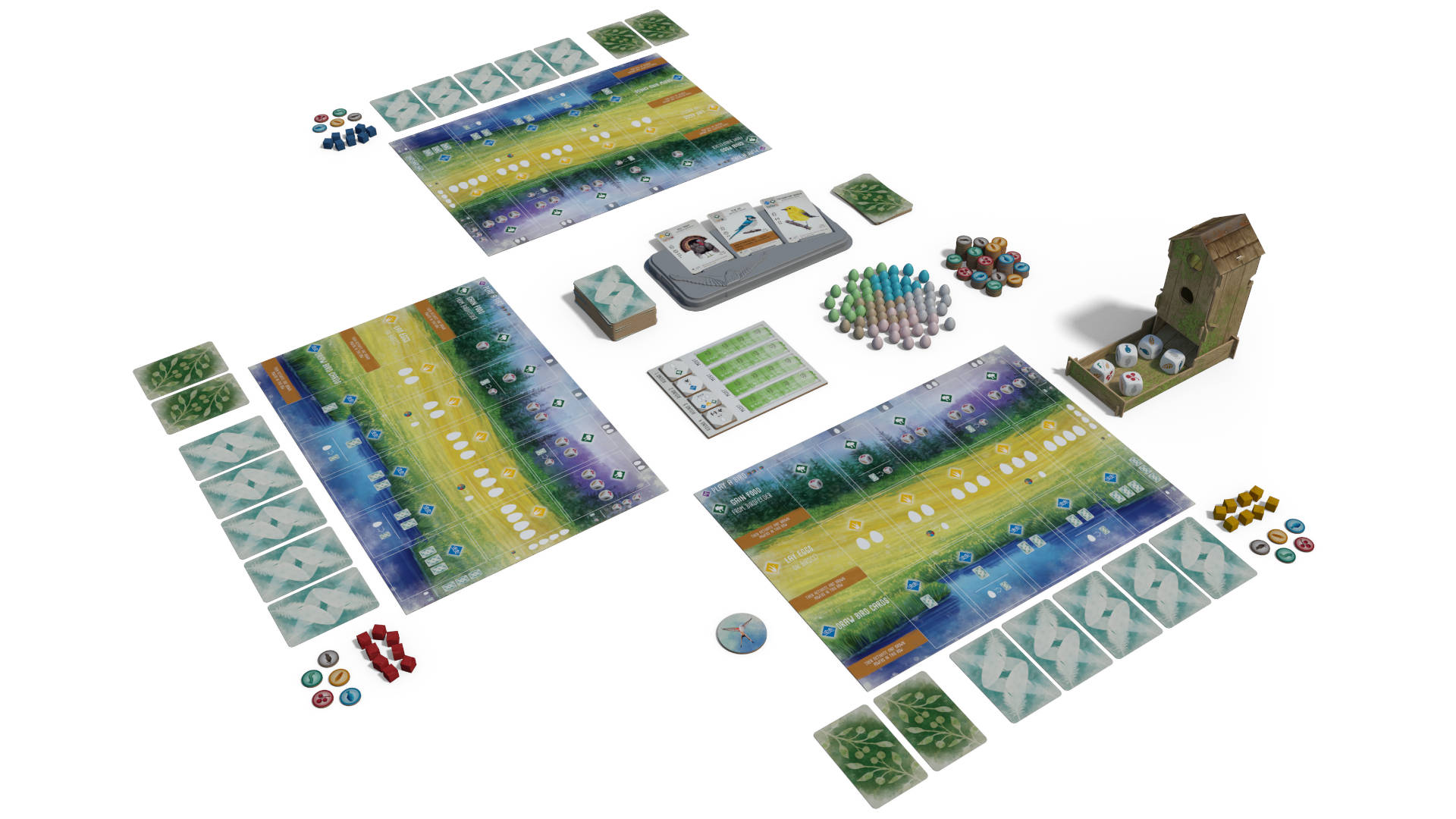 Buy now
Buy nowWINGSPAN
Wingspan was an instant hit when it released in 2019, winning a slew of prestigious awards and quickly becoming a fan favourite of all those in the board gaming hobby. Its placid theme makes for a riveting game of deep, but friendly, avian strategising, as you and your fellow bird enthusiasts try to coax a variety of feathered friends into your aviaries – scoring some delicious points along the way.
A gorgeous art style featuring delightful illustrations
An engine-building game that has you expand your production facilities to accelerate point scoring, and think ahead to combine cards for big wins, you’ll be trying to attract birds into three habitats, laying down the appropriate food to draw in the most prized fowls of the lot. Draw in birds of the correct type in the requisite order, and you’ll chain together bonus effects into big point scorers. The game quickly develops a fast rhythm, as your actions combo, letting you sit back in glee as your simple card plays spiral into mega point parades.
Although competitive, the game is played largely as a solo experience, and you won’t be worrying about the habitats of other players – but might get a little red in the face when they steal the bird you so desperately desire. Undoubtedly, its charm comes from its aesthetic. A gorgeous art style featuring delightful illustrations, Wingspan shows that game’s need not have tense action to create thrills – refined system mechanics and beautiful birds are enough.
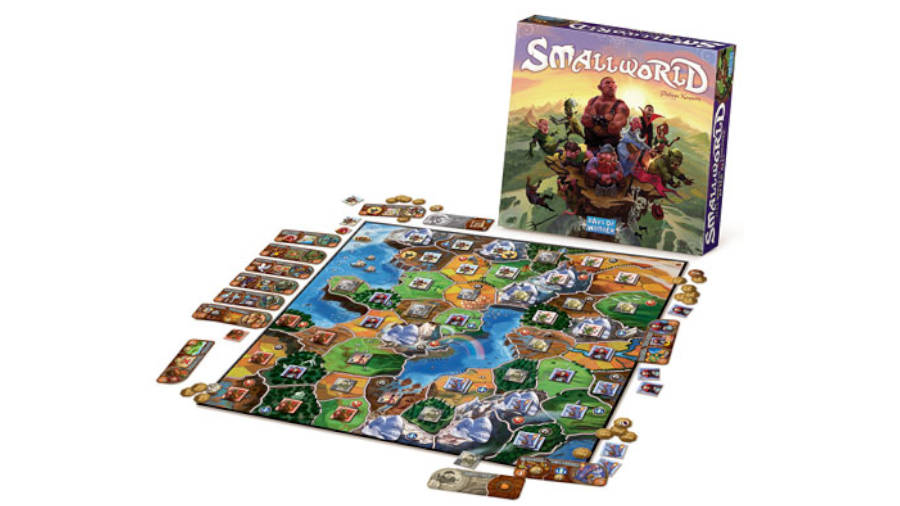 Buy now
Buy now
SMALL WORLD
Few games have as clear explanatory titles as Small World. In this colourful universe of zany fantasy characters, the world is small. Too small. There simply isn’t enough territory around to comfortably seat the sprawling factions of the world, and there is, of course, only one solution – outright warfare for the little space available.
The game’s core premise is instantly recognisable – distribute troops to capture territory, boot opponents out of your borders, and score points based on how far you can spread your empire’s standard. But its real appeal comes from its combinational variety. Played in rounds, you’ll pick from a random selection of fantasy races and their special powers to combine into a unified fighting force, looking to leverage their differing but complementary abilities to best grab provinces and boost your points. Amazons provide four additional tokens to conquer more territory, while Dwarves receive extra victory points when placed in provinces containing a mine, for example.
For all ages: Read our guide to the best family board games
You won’t be able to consistently keep hold of your territory on every turn, and will be eventually forced to let it go into ‘decline’, making it vulnerable to invasion. Choose wisely which provinces to cling onto and which to let go. A rash choice may have you losing everything.
A light strategy game with core mechanics based on Risk, its operation will be familiar to board game newbies, and a regular rhythm of limited, but powerful, decision making will provide an easy introduction to the world of strategy board games. Plus, gorgeous artwork and a colourful game board are sure to keep the interest of even the most ardent naysayers.
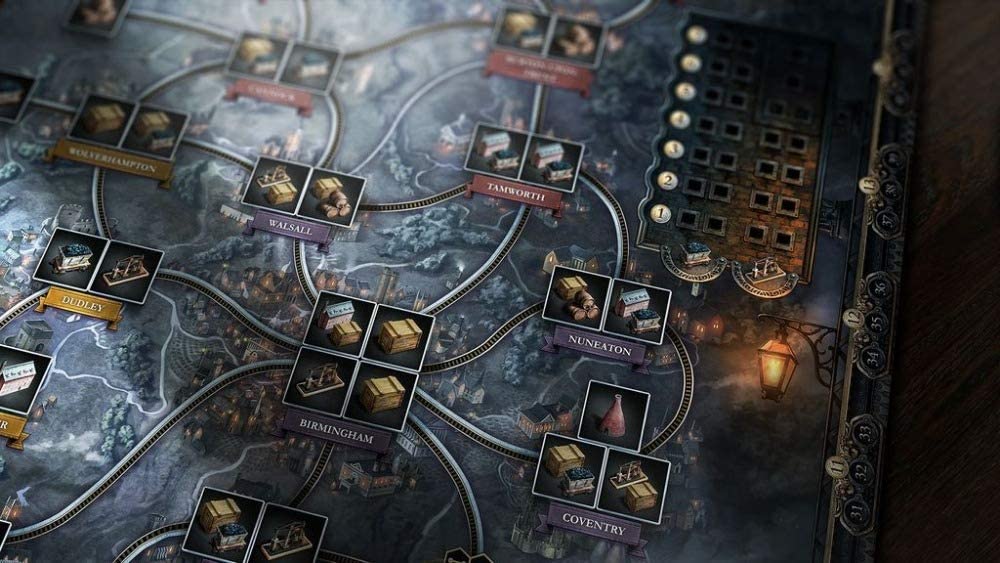 Buy now
Buy nowBRASS: BIRMINGHAM
As any magnate or industrialist will tell you, the true world-defining battles are not fought on the bloody frontlines of war, but in the movements of the economy, forged on the factory floor at the beating heart of manufacturing. As a two-to-four-player economic strategy game, Brass: Birmingham understands this, challenging you to build, develop, and expand an industrial manufacturing network, playing the market to squeeze every last penny of potential profit.
No single strategy trumps the rest, making for brilliant replay value
The game’s core loop is straightforward – choose a selection of actions each turn to develop your industrial output and potential sales. Build another production facility to increase supply, construct new canals or railways to connect with new buyers, take out a loan to fund further development, and, of course, sell your stock to fund further expansion. Build the largest industrial empire, and you’ll receive the most victory points by the game’s end.
But Brass: Birmingham also brings a heavy element of player interaction, especially for a Euro-game. Steal the iron or beer that your opponent was eyeing up, and muscle into their city markets. But watch out. While you’ve been slowly building a network to produce the most profitable consumer goods, another player may have stolen your necessary resources, scuppering your plans. Games can be slow, but this length comes from agonizing decisions, rather than convoluted rules and adjustments. No single strategy trumps the rest, making for brilliant replay value.
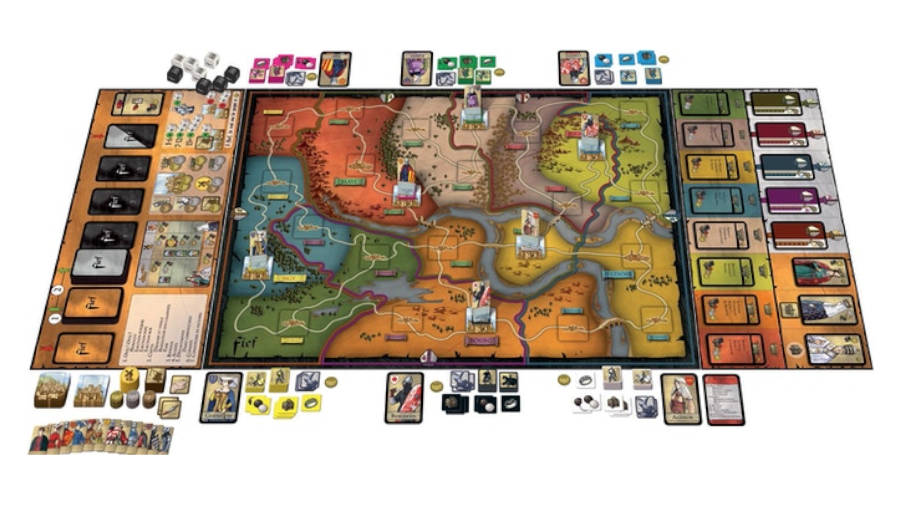 Buy now
Buy nowFIEF: FRANCE 1429
Fief is a game of ambition. Not content with your life Gallic nobility, you want more for yourself and your family. Although played on a compact board with fewer cards and tokens than other grand-strategy games, make no mistake, Fief sits close to Twilight Imperium and could be likened to Paradox Interactive’s Crusader Kings videogame series. It’s big, it’s bold, and full of political scheming in your effort to climb the ladder of power.
Much of your time spent playing Fief will be vying for area control. Assert your authority over groups of villagers and kick out the incumbent to gain their loyalty, while earning a fancy new title for one of your family members. Send others to the Church, establishing themselves in its hierarchy, and creaming off some of that godly gold for your own Feudal desires. Accrue enough status, and you’ll secure victory over the other fledgeling families.
Digital delights: These are best Tabletop Simulator games
But all is not as simple as it seems. Bountiful player interaction will have you scheming to upend the advances of other players, through murder, marriage, annulment, conquest, or the just hand of democracy. Random event cards will upset the balance even further. Your family will rise and fall through the social ladder, separately clinging onto a semblance of power to reemergence and take a place as the righteous ruler of France.
Fief is a surprisingly complex game for such an understated appearance. But this is its strength. It offers three to six players a deep world of personal machinations within which to lose themselves in as much bitterness and rivalry as any of the larger grand strategy titles, but does so in a fraction of the playtime.
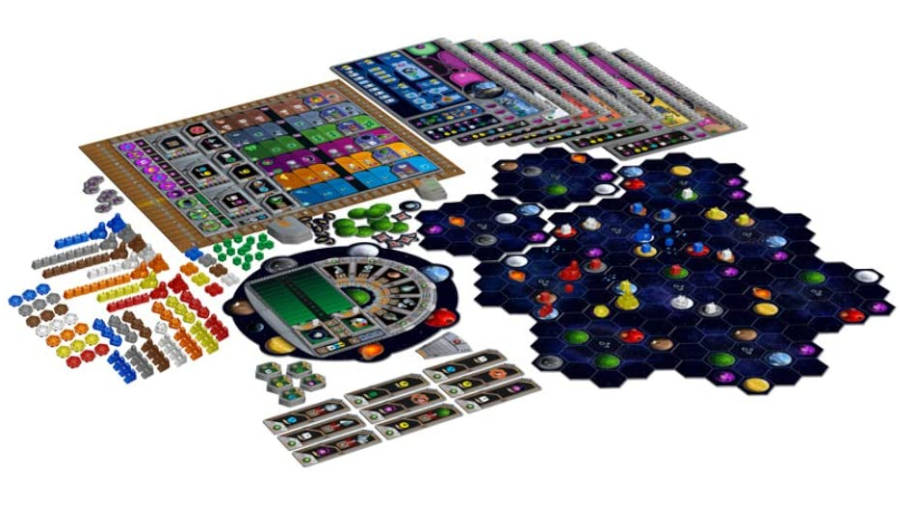 Buy now
Buy nowGaia Project
A game of interstellar colonisation, and the spiritual successor to the much-acclaimed terraforming Euro-game Terra Mystica, Gaia Project is large, tight, and hugely dense. Playing as one of fourteen factions, each with distinct abilities, you’ll set out across the galaxy to terraform planets into hospitable environments for your empire’s settlements.
Ambitions hinge on your ability to finely balance resource collection and spending
A mix of collecting resources, researching additional technology, constructing buildings, and travelling across the stars to discover new areas ripe for colonisation, the challenge comes from speed and optimisation. Your ambitions hinge on your ability to finely balance resource collection and spending, and sagely deciding how much of your efforts should be spent advancing your existing establishments than broaching new areas of exploration. Spend too much time building up, and the available planets within reach will already be claimed. But spread yourself too thin, and your expansive empire will look meagre next to the technological marvel of your opponents’.
In many ways, Gaia Project is the same game as Terra Mystica but bigger. Much bigger. The core operations and vast majority of extended rules have moved over wholesale from the original game, met with additional content that complicates the game. The additions feel warranted and serve to diversify gameplay rather than bog it down in unnecessary chaff, but be prepared to spend a long time reading the rule book, and picking it up a few times during play.
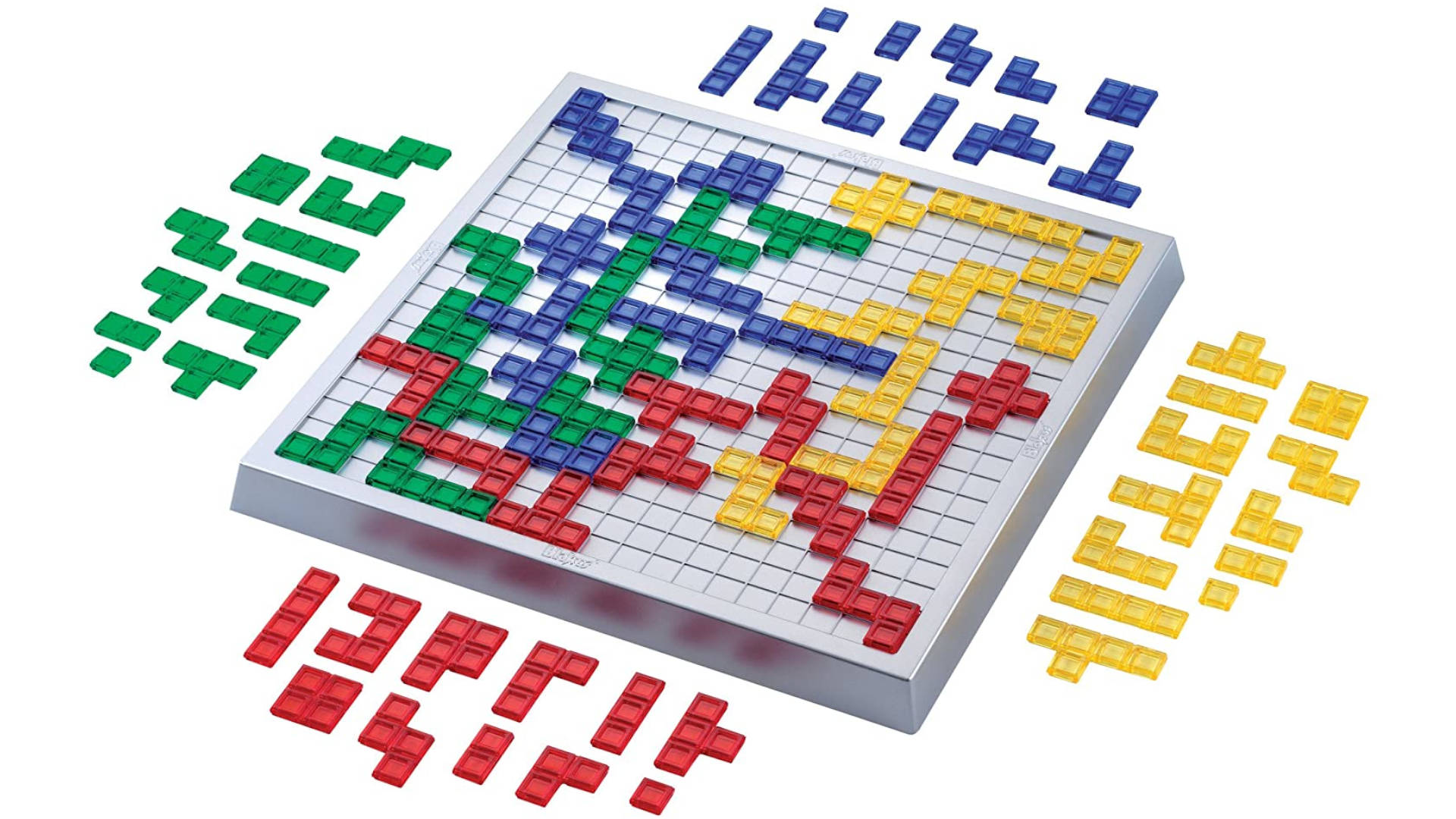 Buy now
Buy nowBlokus
An abstract strategy game and a family classic, Blokus is quick and simple. Two to four players are assigned a batch of tetronimo-like pieces, and take turns placing them on a small grid board. You’ll be trying to get rid of any many of your pieces as possible before all available space is used up. The catch, however, is that your pieces can’t be placed with their edges touching, and may only lie corner to corner.
Brilliantly simple, Blokus calls for careful deliberation but not overly complex forward planning. All moves available are visually outlined in front of you, dispensing with any esoteric rule digging or lengthy decision making.
Roll initiative: These are the best Tabletop RPGs
You might plan a strategy, carefully setting up your pieces to provide heaps of space for expansion, but as your colourful lines grow, so will your opponents, eating into your space and busting that hard-thought geometrical organisation.
The joy of Blokus comes from its variable demandingness. Kids can happily place block-upon-block with little care, gradually seeing the poorly structured mess unveiled to them, while others might enjoy stringently optimising their moves and second-guessing their opponents’ plays. With a super quick turn around, it makes for a fantastic warm-up on any board game night.
Source: Wargamer




